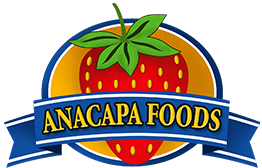What does sustainability mean to the multigenerational avocado and citrus farmers of Camlam Farms in Camarillo, Calif.?
“It means you're making a profit,” said John Lamb, president of Camlam Farms.
The Lamb family has been farming in what is now Ventura County, Calif., since Juan Camarillo, John Lamb's great-great-grandfather, purchased a 10,000-acre Spanish land grant in 1876. The town of Camarillo was named by Lamb's great-grandfather Adolfo Camarillo, who inherited the land from his father Juan Camarillo.
Today, the family, led by John Lamb and his brothers Bert and David Lamb, still own a few thousand of those acres, 1,000 of which are planted predominantly to avocados, with lemons and mandarins playing a supporting role.
On a recent media and influencer tour of Camlam Farms organized by the California Avocado Commission, Bert Lamb said their father, Robert, first planted avocados on the farm in the 1950s, and now some 70 years later, it remains the family's core business.
“When our parents passed, this is what we had to work with, and you try to make the best you can out of it and make a living and keep it going better than you found it,” he said.
It's a mission that can test a farming family's strategic vision and resiliency daily. Given the challenges, has there ever been a time the Lamb family thought about leaving the farm?
“Like right now,” said a half-joking Bert Lamb addressing the tour group. “It's tough when your markets are poor and with the water allocations up in the valley. Every place you go [farmers] have their own individual challenges, but one of them for us is that we're in both lemons and avocados. Avocados are pretty good this year, but our lemons are absolutely horrible, so a good part of the ranch is losing money. It has been for a few years now, and it cuts into reserves and makes it challenging.”
He said that while California lemons used to command $24 a carton, the current price has plummeted to around $11.

California's water woes and complex regulations also can be burdensome for farmers.
“From the regulations aspect, things just keep tightening,” said John Lamb. “Right now, we're under what's called an ‘agricultural order' with a regional water quality control board. And it's a constant. Now, we're going to move from this phase into a TMGL phase, and you've got to do testing on your water, and you've got to have nutrient management plans. And that's not a big problem. We do tissue analysis every year, and that's how we decide how to fertilize our trees.
“But it's just this constant, one more thing, one more thing, one more thing,” he continued. “And you get that from five different [directions].”

Return of the Next Gen
The daily demands of running the family farm eventually led the older Lamb generation to question its future.
“We actually had a family meeting a couple years ago because Bert and I and our other brother David were all getting, you know, long in the tooth,” said John Lamb. “We said, ‘Do you guys want this?' Because it's not for everybody, and maybe you don't. Everybody in the next generation said, ‘Yes, this is something we want to maintain.'”
A succession plan was born with Maureen Cottingham, Bert Lamb's daughter, as the heir apparent.
Cottingham, who studied ag business at California Polytechnic State University in San, Luis Obispo, Calif., had served as the executive director of the Sonoma Valley Vintners & Growers Alliance for 17 years, when she returned to her family's farm in 2021 as assistant manager.
“In the wine industry, my role would be Cellar Rat — I do anything and everything,” she said. “As in any family business, you wear many hats. So, it just depends on the day.”
The mother of three is now rearing her children on the same land that was her childhood stomping grounds.
“Farming in California is very special because we have incredible climate, incredible soils and we are able to grow a lot of things that the rest of the world can't,” she said.

Camlam Farms has some 500 acres planted to avocados and lemons and 10 acres devoted to mandarins. Among the avocados varieties cultivated on the farm is the family's namesake Lamb hass avocados. In the late 80s, the Lamb family participated in university trials of different avocado varieties, including GEM avocados and what would become known as Lamb hass, both varieties of which flourish at Camlam Farms today.
“I just feel so blessed and honored to be able to follow the footsteps of my family and our legacy here and our farming tradition — to be part of that and continue, hopefully for our next generations after me, my siblings and my cousins. It's truly an honor,” Cottingham said.
When it comes to the family farming legacy, Cottingham is taking a page from her father and uncles' playbook.
“As far as preserving that tradition and the legacy for our family and next generations, to quote my dad and my uncles, I think you're working on it every single day, and while it sounds very romantic to say that there's a tradition, our tradition is we do tomorrow what we did today. And just continuing that.
“The biggest thing is that the business has to be profitable, otherwise you can't afford the tradition,” she continued. “It has to be profitable to stay in existence. Dad always says, ‘We put beans on our table with what our ranch makes, and so every day we have to turn a profit.'”
For Cottingham, part of staying profitable means taking a science-based approach to fertilization, irrigation strategies and daily farming practices.
“We focus on a sustainable agricultural model, which is really important,” she said. “We prioritize on a daily basis with our crew, practices that grow the best quality, which we think results in delicious fruit that's consistent in taste and texture when it hits the marketplace.”

Setting the Next Gen Up for Success
Cottingham also credits her father and uncles with making decisions for the family farm with future generations in mind.
“They look to the future and are careful not to put things in place where they're going to be ruling from the grave,” she said. “They always say, ‘We don't know what you guys are going to be facing in 30, 40 or 50 years.' So, they're really careful in their decisions for the next generation.”
What's an example of decision-making from the grave?
“There are a lot of preservation groups in California that do a lot of great work in preserving the open space and our agriculture and so forth,” Cottingham explained. “But sometimes farmers want to preserve their land so much so that they sell their developmental rights to keep their properties in ag or in cattle ranches, and then that does not allow their future generations to make decisions — to expand, to shrink or to continue their businesses — in a way that that reflects the current day.”
She said the family has made a conscious decision to avoid the limitations of land preservation and focus instead on continuing to make sustainable decisions from a business standpoint with the goal of keeping the ranch for next generations.
Citrus Struggles
Your father called the lemon situation “absolutely horrible.” Where do you see Camlam Farms' future with citrus headed?
“It is not revenue generating right now and hasn't been for the last couple of years,” she said. “It's even scarier looking at this year and the next couple years as far as the lemon industry goes. We're hoping there's going to be a big enough shakeout in the industry that guys that are growing the best quality citrus will be able to hang in there, and that potentially, if the industry shrinks enough that it will bring the guys that are still standing back into profitability.”
Cottingham said that a market flooded with lower priced lemon imports has created a tenuous situation.
“It's such a shame because Ventura County is the lemon capital of the world, and so it's really sort of a sad situation that a lot of our colleagues and family farmers here in Ventura County are facing,” she said.
Cottingham said while the vision has always been crop diversity on the farm, the family could turn to more avocados and fewer lemons moving forward.
Loyal Labor
Beyond the family members tending to the future of Camlam Farms, the ranch has 15 farmworkers on its payroll, 10 of whom live on the ranch with their families. It's a mutually beneficial arrangement that offers safe, family-friendly housing to the farmworker team, who are then on the scene when there's a night frost or something else that needs immediate attention. The family attributes this perk to their ability to keep a full-time staff on the farm.
“We treat our employees well, and we're very, very blessed to have good people,” Cottingham said. “We try to give to them, and in turn, they're loyal to us. At the end of the day, we treat our employees well, and we provide full-time work so there's not any question or uncertainty as to whether or not they're going to have their jobs tomorrow or next week.
“Whether you're growing avocados or almonds or asparagus or broccoli, it comes down to regulatory conditions and challenges, water and labor. But I think right now it's also markets,” she said. “It goes back to making that commitment to a sustainable approach, making certain you're dedicated to quality, treating your employees well and making the right decisions for generations to come.”



















